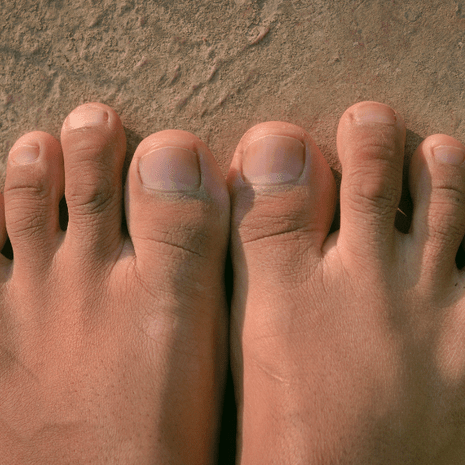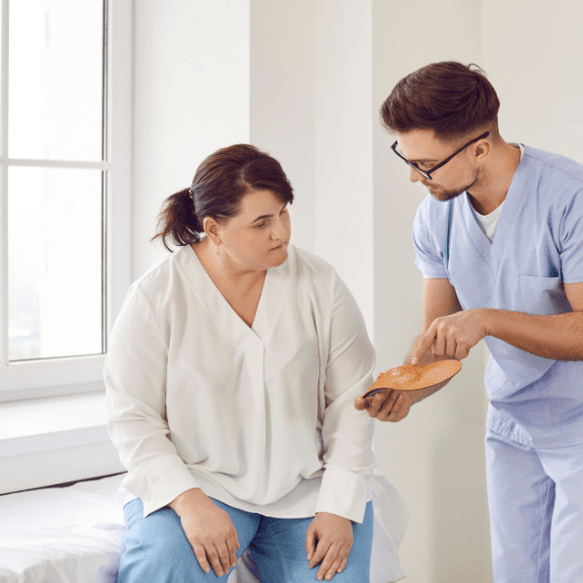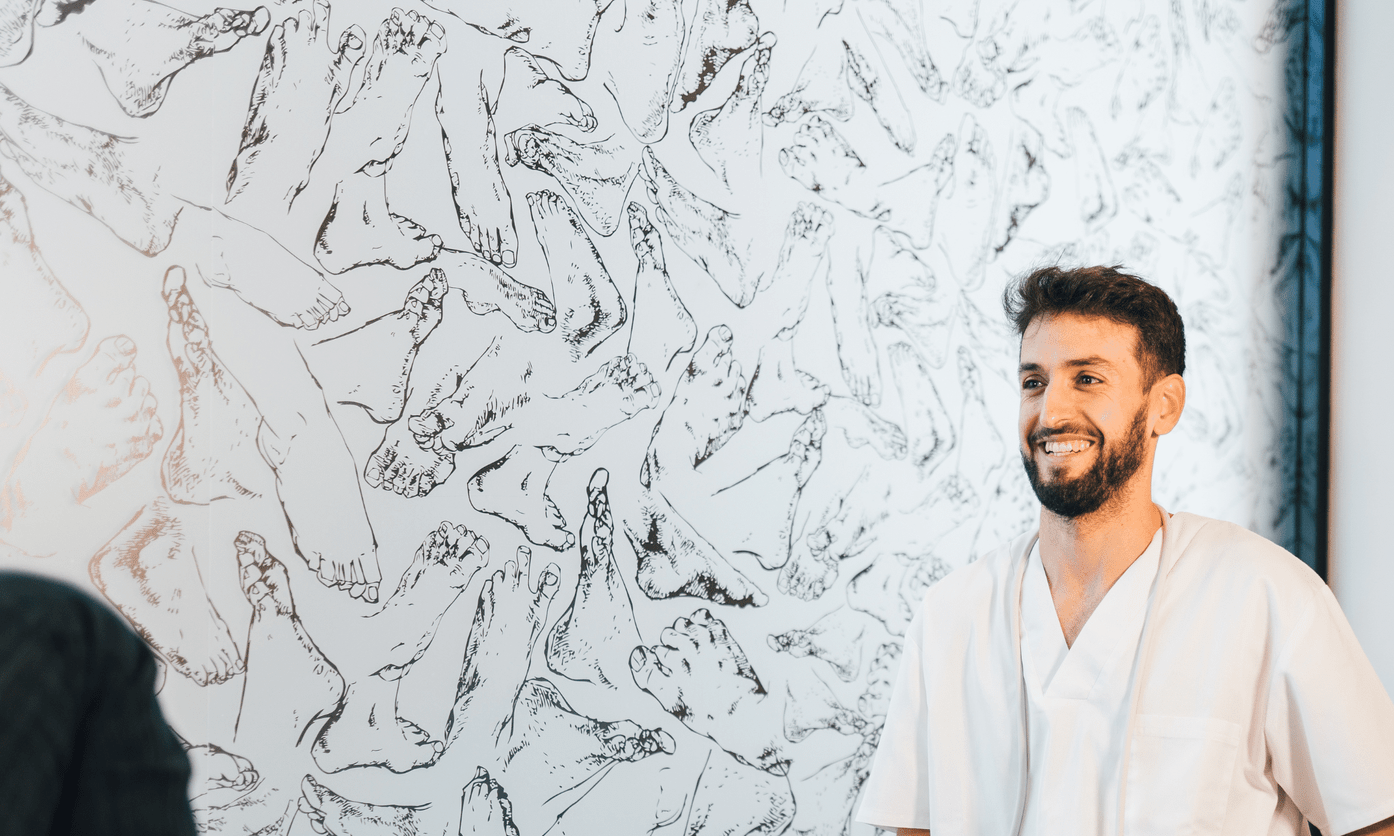Claw Toe Treatment at Foot Foundation
Claw toes curl at two joints, often linked with arthritis or neurological causes, and quickly develop corns, calluses, and forefoot overload. Rigid deformity can make shoes and activity difficult.
At Foot Foundation, we reduce friction and restore function with silicone props, orthotics, and footwear changes, plus mobility and strengthening work. When pain persists or rigidity advances, we organise imaging and specialist surgical opinions.
What are Claw Toes?
Claw toes are a deformity where the toes curl downward at both the proximal (PIP) and distal (DIP) joints, often lifting at the base (metatarsophalangeal, or MTP, joint). This creates a claw-like appearance.
Unlike hammer toes (which bend at just one joint), claw toes involve multiple joints, making them more rigid and frequently associated with neurological conditions, arthritis, or chronic biomechanical imbalance.
Claw toes can lead to pain, footwear problems, corns, calluses, and difficulty walking. At Foot Foundation, we provide specialist assessment and treatment to relieve symptoms, correct mechanics, and prevent progression.
Causes & Risk Factors
Biomechanical imbalance – weak intrinsic muscles, overactive extrinsic flexors, and long-term imbalance between tendons
Neurological conditions – stroke, cerebral palsy, Charcot-Marie-Tooth disease, peripheral neuropathy
Arthritis – rheumatoid or osteoarthritis affecting toe joints
Footwear – narrow or high-heeled shoes crowding toes into abnormal positions
Associated deformities – bunions, flat feet, or high arches altering toe alignment
Trauma – injury to toe joints or tendons
Age – more common in older adults due to weakening soft tissues
Treatment at Foot Foundation
Footwear advice – wide, deep-toe box shoes with cushioning to reduce rubbing
Custom orthotics – correct foot mechanics, reduce forefoot overload, and support toe alignment
Padding & splints – silicone toe props or sleeves to reduce pressure and friction
Exercise therapy – strengthening intrinsic muscles, stretching tight flexors
Manual therapy & mobilisation – maintain joint mobility in flexible claw toes
Callus and corn care – regular podiatry treatment for pain relief
Shockwave therapy – in cases of associated tendon overload
Referral for surgery – if pain persists or deformity is rigid, surgical correction may involve tendon release, fusion, or joint resection
Symptoms
Toes curled downward at the middle and end joints
Top of toe rubs on footwear, causing corns or calluses
Pain in the ball of the foot (metatarsalgia) from altered pressure
Difficulty straightening toes, especially in rigid deformities
Pain worsens with walking or standing
Secondary deformities – overlapping toes or worsening bunion deformity
Diagnosis
At Foot Foundation, diagnosis includes:
Clinical examination – flexibility of the toes, callus/corn formation, footwear irritation sites
Biomechanical assessment – gait analysis, arch function, muscle imbalance
Neurological screening – when neurological causes suspected
Imaging (if needed):
X-ray – to assess joint alignment, arthritis, or structural damage
Claw Toes – FAQs
Claw toes are a deformity where the toes bend downward at both joints, giving a claw-like appearance.
They are caused by muscle imbalance, arthritis, neurological conditions, or poorly fitting footwear.
Hammer toes bend at one joint (PIP), while claw toes bend at both PIP and DIP joints, often combined with extension at the MTP joint.
Yes. They often cause pain, corns, calluses, and difficulty with footwear, especially in rigid deformities.
Flexible claw toes can be managed with orthotics, footwear changes, splints, and exercises. Rigid deformities often require surgery if painful.
Yes. Orthotics correct underlying biomechanics, reduce forefoot overload, and help prevent progression.
Shoes with a wide and deep toe box, soft uppers, and cushioning are recommended. Avoid narrow or high-heeled shoes.
Exercises may help in flexible claw toes by strengthening intrinsic muscles. They cannot correct rigid deformities but may reduce pain and progression.
Surgery is considered when:
- Pain is persistent despite conservative care
- Corns/calluses are severe
- Deformity is rigid and worsening
- Daily activity and footwear are significantly limited
Yes. They often develop alongside bunions, flat feet, high arches, or neurological conditions, increasing forefoot pain.
Why Choose Foot Foundation?
Foot Foundation provides specialist claw toe care, combining podiatry, physiotherapy, and conservative treatments. We offer orthotics, footwear optimisation, exercise therapy, and corn/callus management, and coordinate surgical referral where necessary.
With clinics in Rosedale, Takapuna, Remuera, Botany, Hamilton, and Tauranga, expert claw toe treatment is available across New Zealand.




